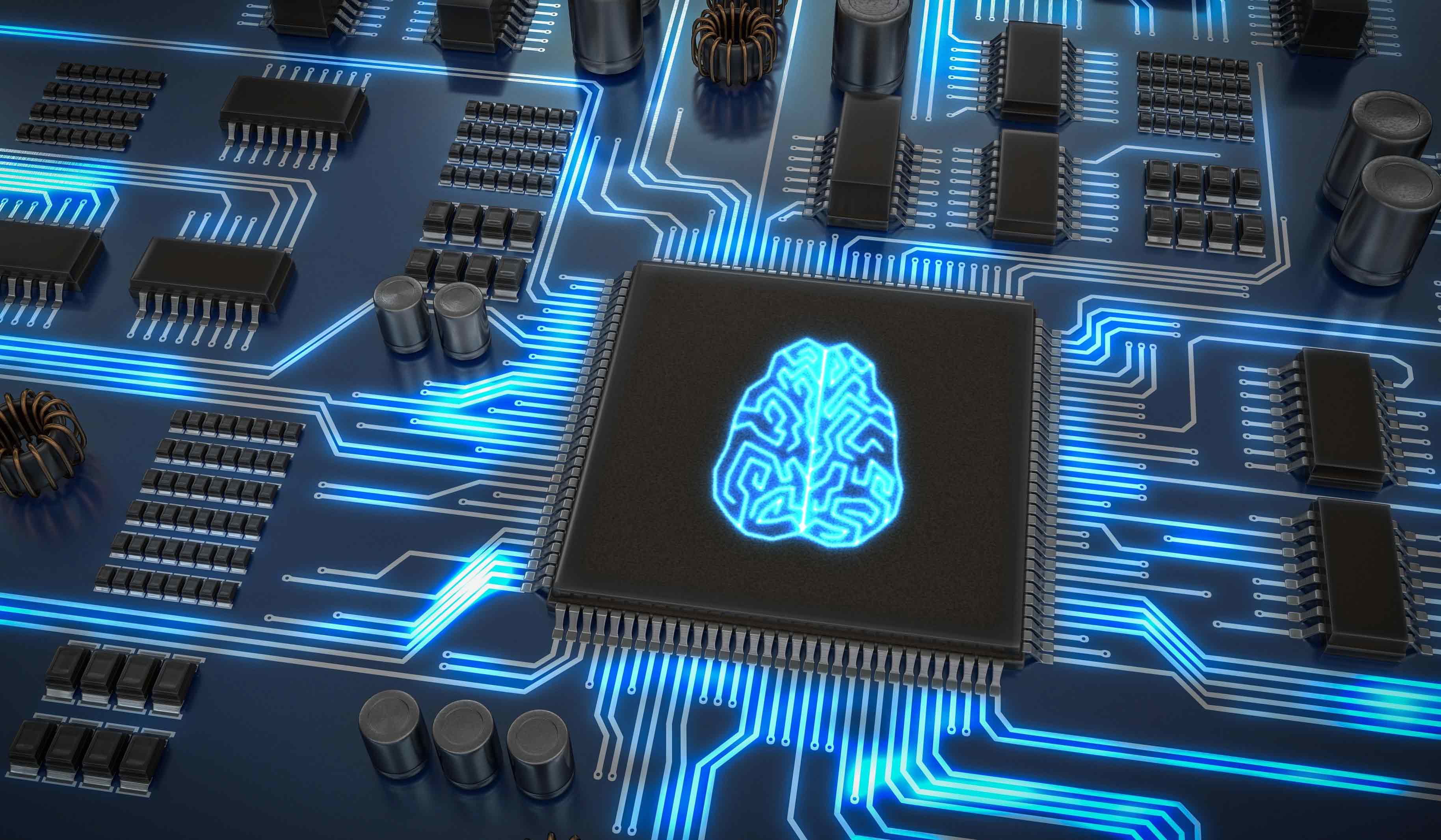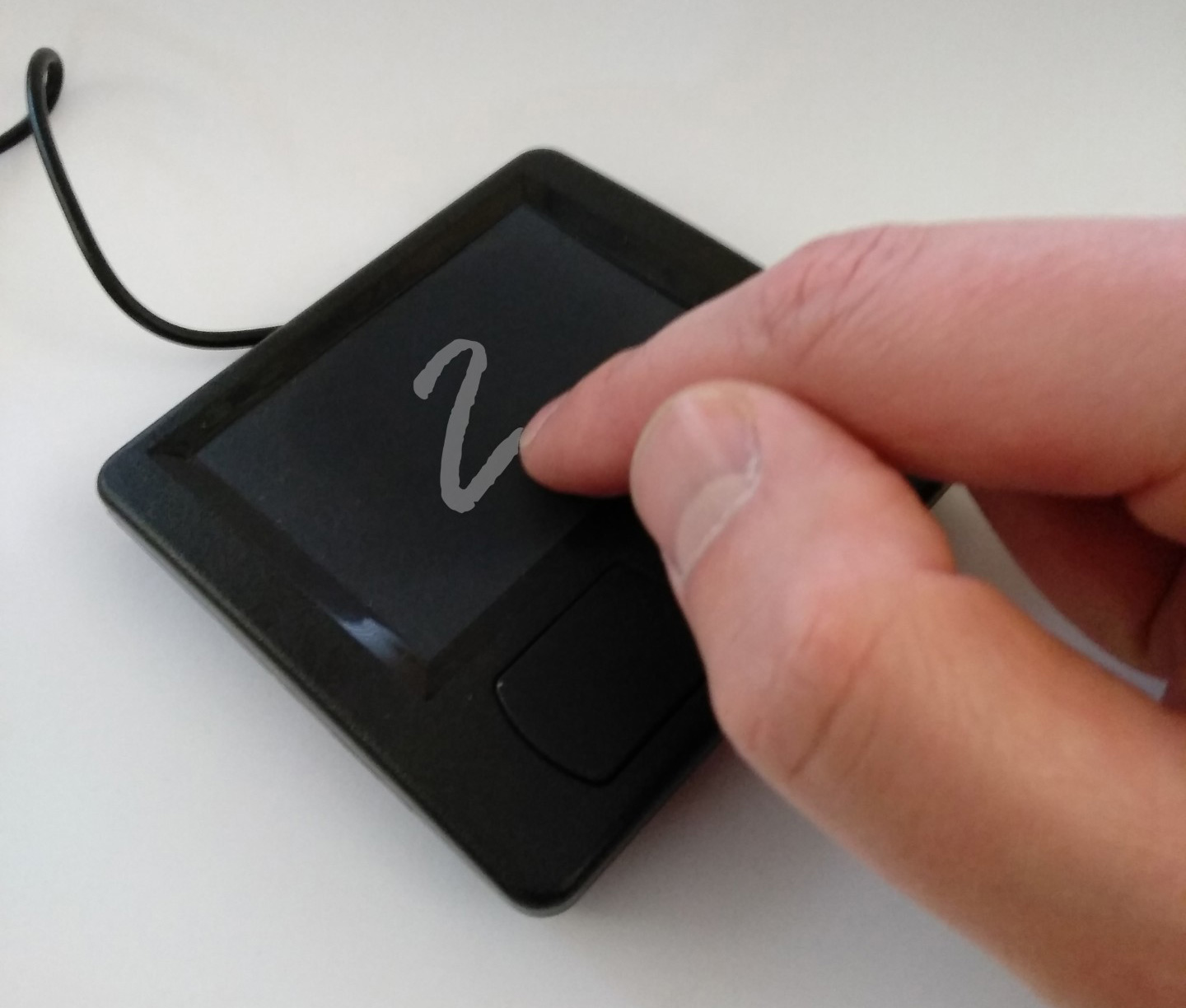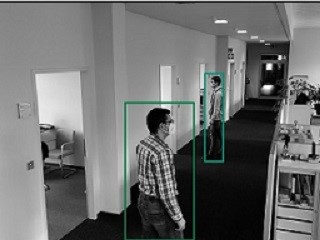Artificial intelligence (AI) is a key technology with great potential for increasing productivity and efficiency. In the recent past, stunning results have been achieved by means of AI in the field of data analysis, pattern recognition and also content synthesis. These hurdles have mostly been overcome by means of deep neural networks (DNN) and by processing massive amounts of data (Big Data), which requires the use of powerful computers for computation. However, this is in stark contrast to the use of AI in sensors, energy-saving networked products and cost-optimized systems. The currently still frequently used approach of outsourcing AI to the cloud to circumvent this problem requires compromises in terms of latency and real-time capability and involves risks with regard to fail-safety and the protection of sensitive, including personal, data.
Industrial AI
In addition to the need for powerful hardware, the traceability of the decisions made by AI systems is also a challenge. DNN are often implemented as black boxes, where the function can no longer be traced and which, in the case of self-learning systems, have often not been trained in the context in which they are used. However, this is an essential requirement for reliable use in industrial environments. The Industrial-AI program of Fraunhofer IMS deals with the practical application of embedded AI for product improvement, cost reduction, site optimization, predictive analysis and insight generation in an industrial context.
Based on our hardware and software technologies for AI, we at Fraunhofer IMS develop intelligent sensor systems with AI-supported data processing directly in the sensor. This enables secure and real-time capable sensor systems with high reliability and strongly reduced requirements on the communication infrastructure.
The AI software framework AIfES (Artificial Intelligence for Embedded Systems) developed at Fraunhofer IMS enables the easy implementation of artificial neural networks (ANN) on almost any hardware platform, from small 8-bit microcontrollers to powerful controllers and PCs. Maximum compatibility with respect to compilers and runtime environments is achieved through an implementation entirely in the ANSI-C programming language. All degrees of freedom of a ANN are adjustable and it is possible to dynamically reload new ANN at runtime. Thus, a device can perform multiple tasks by reloading and executing a suitable ANN at a time. A special feature of AIfES are the implementations of training algorithms such as ADAM or backpropagation, which are specially optimized for resource-constrained systems. These optimizations make it possible to train a ANN directly on a microcontroller. This provides a high level of data protection and enables real-time data processing, since no connection to a cloud is required.
AIfES allows the import of trained ANN models from TensorFlow® and PyTorch® and also a post-training of these models within AIfES. All common mesh types are supported and AIfES also offers features such as weight quantization and a fixed-point mode for microcontrollers that do not have efficient floating-point arithmetic. In addition, AIfES has also been optimized for the use of hardware accelerators, such as those available in some microcontrollers, for example the ARM Cortex family.
Through our unique feature extraction techniques, we realize particularly small and efficient ANNs. We use our long experience in signal processing to pass only the most necessary features from a signal to the AI and thus achieve particularly compact implementations, with corresponding advantages in terms of processing time and energy consumption. In addition, we combine expert knowledge with machine learning to transform the black box of a pure AI solution into a so-called grey box, which works much more comprehensibly. In this process, the customer's existing application-specific knowledge of physical relationships and empirical values is incorporated into the design of the AI solution.
AlfES combined with our feature extraction know-how has already been used in many industrial projects and in a wide variety of application areas.
From HMI applications such as robust handwriting or gesture recognition, to camera-based highly integrated human recognition. Furthermore, AIfES has also been integrated directly into sensors to improve the measurement result or to compensate for cross-sensitivities in the measurement
In addition to a pure software solution with AIfES, which can be used on virtually any hardware, the Fraunhofer IMS also offers specialized and optimized hardware solutions for particularly efficient AI implementations. For applications that require near-real-time and trustworthy integration of AI, Fraunhofer IMS offers AIRISC, a microcontroller core based on the free RISC-V instruction set architecture that has been optimized for maximum efficiency when using AIfES as part of a hardware/software co-design. The core can be integrated directly into sensor ASICs for cost-driven products, but is also available as a soft core for flexible FPGA-based designs. For FPGA implementation, Fraunhofer IMS provides reference designs with special features, such as dynamic reconfiguration, which enables dynamic reloading of signal processing blocks and AI elements and thus the use of low-cost.
Fraunhofer IMS offers you a variety of different services in the field of AI. If you have not yet gained experience in the AI environment, we support you from the first idea to the implementation into a demonstrator. We are happy to advise you here and show you ways in which AI can improve your products. Customers with already established AI experience also benefit from our tools and instruments, which can be easily integrated into existing development processes.
Our applications - Examples of what we can do for you:
Machine Learning for Sensors
Microcontrollers are built into almost every technical device - from washing machines and blood pressure monitors to wearables. With AIfES, researchers at the Fraunhofer Institute for Microelectronic Circuits and Systems IMS have developed an artificial intelligence (AI) for micro-controllers and sensors that includes a fully configurable artificial neural network. AIfES is a platform-independent machine learning library that can be used to implement self-learning microelectronics that do not require connection to a cloud or powerful computers. The sensor-based AI supports handwriting and gesture recognition. If the library runs on a wearable, for example, input can be controlled by gesture.
Machine Learning for Sensors - Fraunhofer IMS
Trusted Embedded AI with RISC-V
The Fraunhofer Institute for Microelectronic Circuits and Systems IMS has developed a trusted embedded AI (Artificial Intelligence) on RISC-V basis. With this development, the Duisburg research institute is expanding its range of products for trusted electronics.
Trusted embedded AI with RISC-V - Fraunhofer IMS



